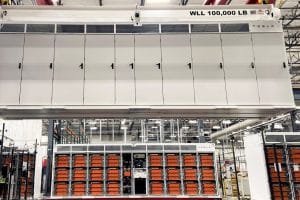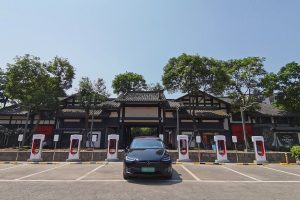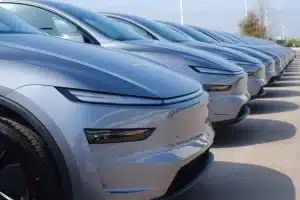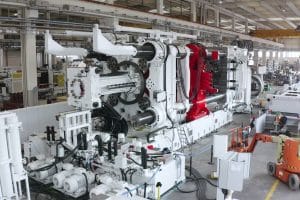Redwood Materials provided a one year update on its work recycling essential materials from end-of-life (EOL) battery packs to produce new high-quality battery cell materials. The company recovered ~95% of metals from EOL battery packs that could be used to produce anode and cathodes for cell production.
The world’s first electric vehicle battery recycling program collected approximately 1,268 battery packs from 19 battery electric vehicles (BEVs) and hybrid models over the last 12 months. Redwood Materials worked with partners on the program, including Toyota, Ford Motor Company, Volvo Cars, and Volkswagen Group of America.
The battery recycling company also worked with dismantlers to collect and recycle lithium ion and nickel metal hydride (NiMH) from EOL vehicle batteries.
“The packs we collected were a mix of older NiMH and newer lithium-ion chemistries from more than a dozen different automakers. We expect mixed chemistries to continue as older, hybrid vehicle models now reaching end-of-life continue to retire in greater numbers from California roads. However, lithium-ion represented the majority of the chemistry types collected and we expect it will continue to grow as it is now the only type of vehicle battery on the market,” noted Redwood in its report.
PUBLIC POLICIES FOR RECYCLING EV BATTERIES
The company noted that logistics was the highest cost in battery pack collection. It calculated that achieving economies of scale would reduce logistical costs for EOL battery packs. Redwood also reported that the recycling process for smaller batteries found in consumer devices and production scrap is already profitable. The company predicts recycling larger electric vehicle batteries will become profitable as EOL pack volumes increase and logistical costs decrease.
Redwood encourages policymakers to lower transportation costs to safely collect and handle EOL battery packs from electric vehicles.
“Existing regulatory frameworks were not intended to address recycling pathways for large electric vehicle battery packs. This is a major opportunity to update these regulations to address the modern EV era while continuing to ensure the safe collection and recycling of these packs, without adding additional fees that could inadvertently increase the costs of EVs,” noted the company.





